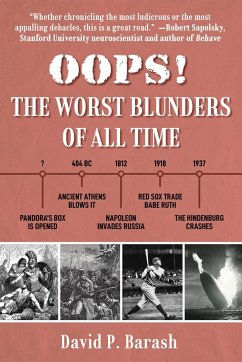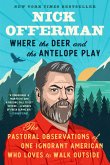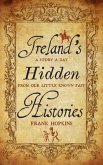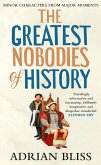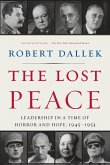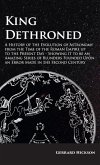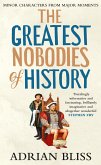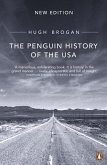Travel through history and around the world to learn about the greatest mistakes, blunders, and bloopers of all time! Everyone makes mistakes and nearly everyone likes to know about them, especially when made by someone else! The Worst Blunders of All Time : Shocking Tales from Pandora's Box to Putin's Invasion presents some of our most notable blunders, from the silly to the consequential, from ancient history to current events. It offers the pleasure of Schadenfreude and of an easy-going reading experience, as well as—here and there—some learning opportunities. The reader will see when relatively big things have gone wrong and couldn’t be called back, such as iconic, mythical blunders like Pandora opening that troublesome box and Eve taking her ill-advised bite, to great historical oops such as Napoleon’s invasion of Russia in 1812, as well as some less monumental but nonetheless exemplary mistakes, such as the “Curse of the Bambino,” when the Boston Red Sox sold Babe Ruth—at the time, a pitcher—to the New York Yankees. These and other exemplary oops are presented in a light-hearted way, with some exceptions being catastrophic, current catastrophes, such as Trump’s egregious mishandling of the COVID-19 pandemic. Author David P. Barash will take readers from the tragic to the whimsical, with the latter represented by, for example, “Wrong Way Corrigan,” an early twentieth century aviator who thought he was flying nonstop from New York to California, but, confused by a heavy fog, ended up in Ireland. Pointing out these and other mistakes will be an exercise in Monday morning quarterbacking and 20-20 hindsight. Thus, The Worst Blunders of All Time shall “backstrapolate”: looking in the rear-view mirror at mistakes made by others. The Worst Blunders of All Time is neither an advice book nor a series of cautionary tales. It’s an easy and accessible read, especially useful as therapy in these difficult times. However, its nonetheless accurate and informative, giving rise to some potentially useful take-home messages, keyed to its material. Ideally, we should all benefit from our own mistakes, making lemonade out of lemons, while also following Eleanor Roosevelt’s advice: “Learn from the mistakes of others. You cannot live long enough to make them all yourself.”
Hinweis: Dieser Artikel kann nur an eine deutsche Lieferadresse ausgeliefert werden.
Hinweis: Dieser Artikel kann nur an eine deutsche Lieferadresse ausgeliefert werden.

